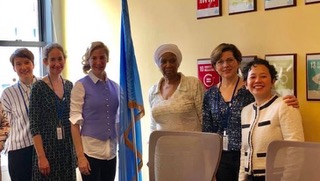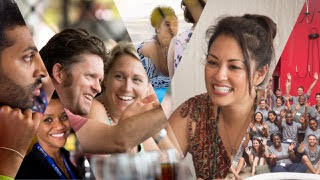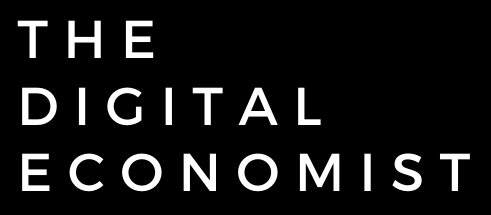by Natalie Rekstad, Founder & CEO of Black Fox Philanthropy, LLC, B Corp

Women Moving Millions Delegation pictured with UN Under-Secretary-General and Executive Director of UN Women Phumzile Mlambo-Ngcuka (to the right of flag)
“The Agreed Conclusions, even though not everybody got everything they wanted, give us enough to take home, to work and to take further the work of improving the quality of life of women and girls” stated UN Under-Secretary-General and Executive Director of UN Women Phumzile Mlambo-Ngcuka to delegates at the close of the sixty-third session of the Commission on the Status of Women.
The convening took place March 11-22 at United Nations Headquarters in New York City. It was an honor to be included in a private delegation of Women Moving Millions (WMM) members organized by UN Women National Committee Australia.
Mlambo-Ngcuka’s statement closed the session on a high note of directed action, particularly after her acknowledgment in her opening speech that although there has been “much progress to acknowledge” for women and girls, the “gains are fragile, and we are seeing them reverse.” This is particularly the case in developing countries where high numbers of women dying in childbirth are ‘inextricably linked to poverty and lack of services and infrastructure’ with disparities in education, health care, and legal rights compounding complex challenges.
The UN’s Sustainable Development Goals Report shows as much. There is some progress in discrimination against women and girls, but females are still being deprived of basic rights and opportunities in many areas and in many countries. For example, child marriage and female genital cutting (FGC) remain a challenge, with an estimated 200 million women and girls have undergone FGM and more than 720 million women alive today were married before their 18th birthday. 19% of women—one in five—between the ages of 15 to 49 have experienced physical or sexual violence by an intimate partner in the last year. In 49 countries, there are no laws that protect women from domestic violence.
Using legal frameworks, UN Women and grassroots organizations alike can address issues related to the structure of gender inequality. UN Women’s goals are to end harmful practices like FGC, child marriage, violence, exploitation, trafficking, and discrimination (UN Sustainable Development Goal 5 ‘Achieve gender equality and empower all women and girls’). The goal also looks to offer women and girls participation and equal opportunities in leadership; to ensure equal opportunities and rights in areas of law, economics, and healthcare; leverage technology to promote the empowerment of women, and adopt and strengthen policies and legislation to advance gender equality.
“That gender rights and equality are so perilous & have to be guarded so vigilantly was a key undertone of CSW63,” shared WMM delegate and co-founder of The Case For Her, Wendy Anderson. “Member states made their opinions clear in the careful selection of the words ‘gender’ vs. ‘women’ vs ‘family’ when phrasing support of the conclusions under discussion. We were reminded of new restrictions seen around the world to curtail women’s reproductive rights and freedoms and the years of work still ahead to achieve gender equality.”
Not only does the elimination of discrimination help women and girls, but gender parity is also fundamental to whether and how economies and societies thrive. Where there’s more gender equality, there’s more peace: Gender equality is a more reliable predictor of peace than a country’s GDP or level of democracy. Advancing gender equality will add billions to the US economy. Gender diversity in leadership roles also boosts business performance. And close to home for all of us: Gender equality makes children’s lives better. Teens in countries with higher levels of gender equality experience higher levels of satisfaction than teens in countries with lower levels of gender equality.
NGO and Women Moving Millions partner Tostan echoes the necessity for changing the perception of women and girls in local communities that hold traditional beliefs; however; they have seen only a few proven ways to do this and it’s not just through passing laws enforcing formal education, but by putting resources toward local em-powering education models.
The objectives sought are a large task, but not an impossible one. Although UN Women is underfunded, receiving less than half of their proposed budget (International Center for Research on Women), and “progress towards global gender equality seems to be glacial,” as acknowledged by UN Women CSW delegate Analisa Leonor Balares, the mood remained positive and inspiring.
“I believe that there are sources of hope that we can accelerate the rate of change–so that hopefully we can attain gender equality in our lifetime,” said Balares, CEO and Chief Innovation Officer of Womensphere Foundation, Innovation Leadership Lab, and Incubator Network. Balares also remarked on a way around the issue of underfunding for UN Women. “I also believe we can foster greater collaboration, and stop the ‘com-petition’ for funding between organizations/NGOs for women/girls/equality, by expanding the pool of capital and resources available to fund operations and programming around the world.”
Angeline Martyn, Head, Private Sector Engagement, UN Women, also shared, “Without accelerated action, it will take 108 years to close the global gender gap and economic parity will take 202 years to achieve. The 2030 SDG agenda gives us 11 years. If we want to reverse that trend then the time is now for collective action to unlock new pockets and pools of funding to support UN Women’s urgent mandate.”
When asked in the private session with Women Moving Millions members, “What is your greatest hope coming out of CSW on March 22?” Mlambo-Ngcuka replied, “That member states adopt the CSW Agreed Conclusions and bring them to their Cabinets with the request that they put those these commitments into practice at the state and local level.”
The commitments Mlambo-Ngcuka hopes the member states will make include provision of social protection systems; access to public services and sustainable infrastructure for gender equality; and the empowerment of women and girls. The 63rd session of the CSW seeks a shift in policy. In the conversation with WMM delegates, Mlambo-Ngcuka continued, “We will need to see an overhaul on discriminatory laws. And we need quality data and monitoring tools so that in places where there is not adequate infrastructure, we have a baseline to track progress and come back and ask member states, ‘What have you changed?’”
Along with the representatives of the Member States and UN entities, ECOSOC-accredited non-governmental organizations (NGOs) from all regions of the world attended the session. In addition to the discussion of several new themes, women’s empowerment and the link to sustainable development were also reviewed in the sessions run by NGOs in several ecosystem events. In fact, NGO and WMM Partner Tostan helped shine a light upon the good news coming out of the 12-day convening via the film premiere of “Walk On My Own,” a celebration and deep dive panel discussion that many WMM members attended.
The documentary profiles Tostan’s model that emphasizes dignity for all men, boys, women, and girls. The film is unique in that it is told through the lens of filmmaker and would-be child bride, 13-year-old director Ndèye Fatou. As part of the “films ByKids” four-part PBS series, Ndèye Fatou tells her story of growing up in Senegal after recent changes ended traditional harmful practices toward women and girls. She reflects on how human rights education has changed the lives dramatically for girls of her generation who now lead choice-filled lives, including pursuing higher education.
Tostan has created a global movement for positive social transformation, and its community-driven development model has thus far positively affected nearly 5.5 million people. One of the film’s producer’s, Mark Wheeler, shares, “At the present time, over nine thousand villages in West Africa have made public declarations of the abandonment of these practices.”
“It is essential to note the enthusiastic embracement of this movement by African men. Instead of a poorly educated wife, dependent on her husband for every need, the newly educated and independent women are becoming life partners in the true sense,” Wheeler continued. “The basic substructure of society is changing. Women are taking their place as equals to men. Despite headwinds regarding women’s rights in many parts of the world, women in West Africa are moving into the modern age.”
What is notable to this author is that Mark Wheeler is among many men who have joined in the conversation, being all in with advocacy, funding, and more, to ensure that this global movement continues to gain traction in Africa and beyond. This is vital as men hold up the other “Half the Sky” (Kristof and WuDunn, 2008) and their involvement in bringing about shifts enable the movement to go farther, faster.
Founder and Creative Director of Tostan, Molly Melching shared during the panel discussion, “We must include both women and men. To ensure everyone is included, to make it about human rights. To make it known that we have responsibility for the health and well-being of our daughters and sons, and dignity for all.”
Featured guest Alyse Nelson, President, and CEO of Vital Voices Global Partnership, amplified the transformative model of Tostan with closing remarks that included the vital perspective, “Today we have greater laws, we have stronger advocates on these issues, we have more research…but here’s the thing: the big thing I’ve learned is that change can’t be legislated. It can’t just be voted into being. People have to believe it. They have to want it. They have to be willing to stand up and fight for it.”
As the UN Women Executive Director said in her opening speech, “Well-coordinated and integrated infrastructure and social protection that reach large proportions of the population, especially the poorest, the young and old and most in need, can give us that leap ahead.”
Filmmaker Ndèye Fatou—and all she embodies for a new era of possibility—is a prime example of this hope.
Sources:
“Opening statement by Under-Secretary-General of the United Nations and Executive Director of UN Women, Phumzile Mlambo-Ngcuka, at the 63rd session of the UN Commission on the Status of Women.” (UN Women. Monday, March 11, 2019.)
http://www.unwomen.org/en/news/stories/2019/3/speech-ed-phumzile-opening-of-csw63
“CSW63 (2019).” (UN Women. 2019) http://www.unwomen.org/en/csw/csw63-2019
“Financing for Gender Equality: Toward a More Feminist United Nations.” (International Center for Research on Women. September 2016.) https://www.icrw.org/wp-content/uploads/2017/07/Financing-for-Gender-Equality-FINAL-7.14.pdf
“Expenditure by Agency.” (United Nations System. 2017.) https://www.unsystem.org/content/FS-F00-03
“5 Ways Gender Equality Benefits Everyone” https://www.canadianwomen.org/blog/5-ways-gender-equality-benefits-everyone/
“The Global Gender Gap Report 2018” https://www.weforum.org/reports/the-global-gender-gap-report-2018
“Ndeye Fatou’s Story: Walk On My Own.” (Tostan: Dignity For All. February 26, 2019.)
https://www.tostan.org/walk-on-my-own/
“Sustainable Development Goal 5.” (United Nations Sustainable Development Goals Knowledge Platform. 2018.) https://sustainabledevelopment.un.org/sdg5
“Goal 5: Achieve gender equality and empower all women and girls.” (UN Sustainable Development Goals) https://www.un.org/sustainabledevelopment/gender-equality/
Support UN Women at #TimeIsNow. Private sector and philanthropic engagement in the achievement of the SDGs remains invaluable as we track towards 2030.
To Support Tostan’s model of Positive Social Transformation go to https://www.tostan.org






